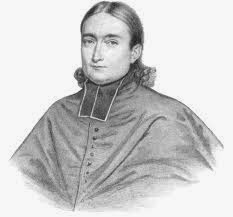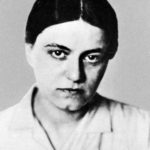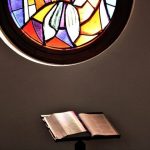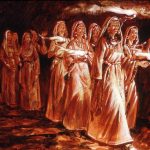
Bautain: the Theodore Ratisbonne’s intelectual master
Strasbourg in the 1820’s was the site for the formation of a circle of religious seekers who gathered around the philosopher Louis-Eugène-Marie Bautain. This group, which included Jews as well as Catholics, encouraged for a time the Jewish members to practice their religion and serve their community, “to become good Jews” in the words of Bautain.
As a young man, Theodore Ratisbonne searched for several years for truth and life’s meaning in various university faculties. A chance meeting with a Jewish friend led him to join a philosophy class, led by Louis Bautain, a renowned philosopher. Suspended from the University for his views on rationalism, Bautain was conducting his classes in the home of an elderly woman, Louise Humann who had been instrumental in bringing Bautain back to the practice of his faith.
After a course at the Ecole Normale, where he was influenced by Cousin and Jouffroy, Bautain became (1819) professor of philosophy at Strasburg. Three years later he took up the study of medicine and finally that of theology and was ordained priest (1828). As director of the seminary at Strasburg, he at first won distinction by his work in apologetics, especially against atheism and materialism. He was chiefly interested, however, in the problem of the relations between faith and reason, concerning which he accepted the view of Fideism and Traditionalism, and reduced to a minimum the function of reason. Divine revelation, he claimed, is the only source of knowledge and certitude. He was consequently obliged to sign (18 November, 1835) six propositions containing the Catholic doctrine on faith and reason. After the examination at Rome of his work, “Philosophie du christianisme” (Paris, 1835), Bautain signed (8 September, 1840) six other propositions differing but slightly from those of 1835. Finally, in obedience to the Congregation of Bishops and Regulars, he promised (26 April, 1844) not to teach that the existence of God, the spirituality and immortality of the soul, the principles of metaphysics, and the motives which make revelation credible are beyond the reach of unaided reason. Bautain was appointed Vicar-General of Paris (1850) and taught at the Sorbonne (1853-62). His works include: “De l’enseignement de la philosophie au 19me siècle” (Strasburg, 1833); “Psychologie experimentale” (ib., 1839); “Philosophie morale” (ib., 1842); “La religion et la liberté” (Paris, 1848); “La morale de l’Evangile” (ib., 1855); “La philosophie des lois” (ib., 1860); “La Conscience” (ib., 1868).







